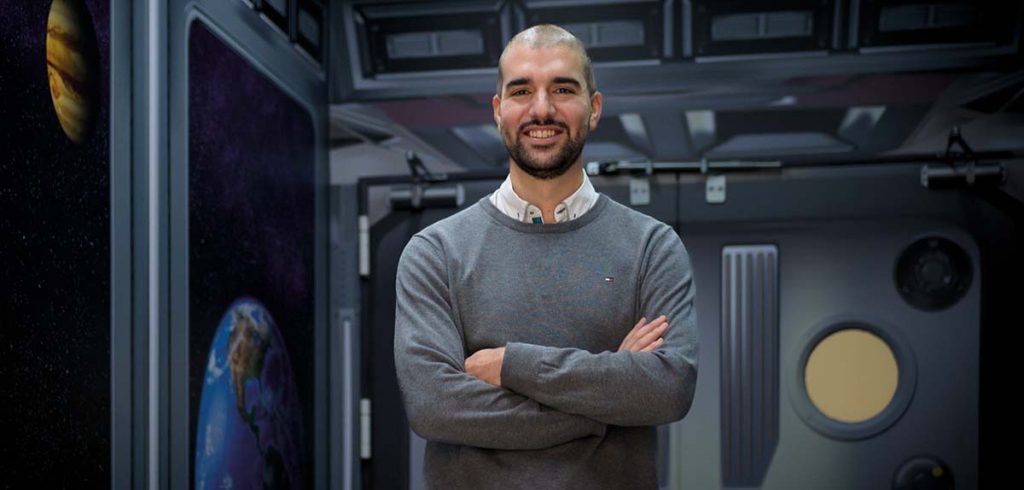In April 2023 you are starting your first steps as a European Space Agency astronaut, leaving your work life at Airbus behind. What will this change imply?
It is a 180-degree change in your life—switching countries, leaving Airbus... and you need to start a career from scratch and learn all you need to become a good astronaut.
Do you believe that working at an aerospace company helped you attain a position at ESA?
Without a doubt. Airbus has given me many opportunities, both in regard to international mobility and to developing my career path in different technical and managerial environments, which were important during my selection.
I believe that from the start I thought of this as something that was practically impossible”
What will you remember of your time at Airbus when you are travelling through space?
All the coworkers and friends I have made throughout these years working for Airbus. I am grateful for all the support and trust they have given me during the selection process. I am certain that some of them will receive an invitation for the launch on the day I get to fly.
What are the next steps that await you as an ESA astronaut?
On April 3rd I started basic training, which will last for about a year and includes a general training in all fields we astronauts must have a basic knowledge of, as well as survival training, Russian, plenty of physical training hours, and I am sure there will be many other surprises.
After this year, we will train as part of a group of astronauts that can be assigned to a mission. Once a mission is assigned, we will have another two years of mission-specific training.
Could you tell us about the selection process and the tests you had to pass?
It was a very long process that lasted 18 months and where over 22,500 persons applied. We passed all kinds of tests, ranging from intelligence, physics, mathematics and language exams to extensive psychological tests, medical examinations and several interviews with different ESA authorities.
Which one was the toughest for you? Did you ever think you would not overcome this challenge?
Well, maybe the toughest part was the waiting after each of the tests, until they told you whether you had passed them or not. I believe that from the start I thought of this as something that was practically impossible, but also a unique opportunity, so I always tried to keep training for each of the tests despite their difficulty.
When you were an ExoMars rover mechanical architect, did you ever think you would have the opportunity to make it to Mars?
Honestly, no, and that is something I still believe. I think that will be a challenge for the next generation of astronauts. For now, we are going back to the Moon with the Artemis missions, and ESA has three seats reserved in them for three European astronauts, but I haven’t even started the training, so I will take it one step at a time and, probably, the first mission I might be assigned could be the International Space Station.
If you were able to choose, did you ever think you would have the opportunity to make it to Mars?
If I could choose and the Mars mission came with a return ticket, I would probably pick Mars because of all that it involves. But with the current technology I think it is best to choose a more realistic goal and keep the focus on the Moon.
Has the Spanish Space Agency contacted you, seeing as you are the only Spaniard with a career that can contribute to its development?
I have been in touch with lots of people involved in the creation of the Spanish Space Agency, and without a doubt, in the future we will be working closely together.
Since Pedro Duque, Spain has not had another Spanish astronaut, Do you believe that the work of an astronaut has changed since then?
It has changed significantly. Pedro Duque was selected 30 years ago and the mission profiles back then were quite different; they were missions that lasted a week or 15 days. Nowadays we are planning missions to the International Space Station of about six months as well as missions to the Moon. This is because, today, a lot more is known about how humans react to microgravity conditions, and thanks to all the knowledge accrued throughout those years.
Who is your role model in the aerospace realm?
Pedro Duque, without a doubt. Other than that, not long ago I had the opportunity to meet Amable Liñán, who received the Prince of Asturias award in the year 1993, and is also from León like me, and I was impressed meeting someone so knowledgeable and, above all, with a humble character.





